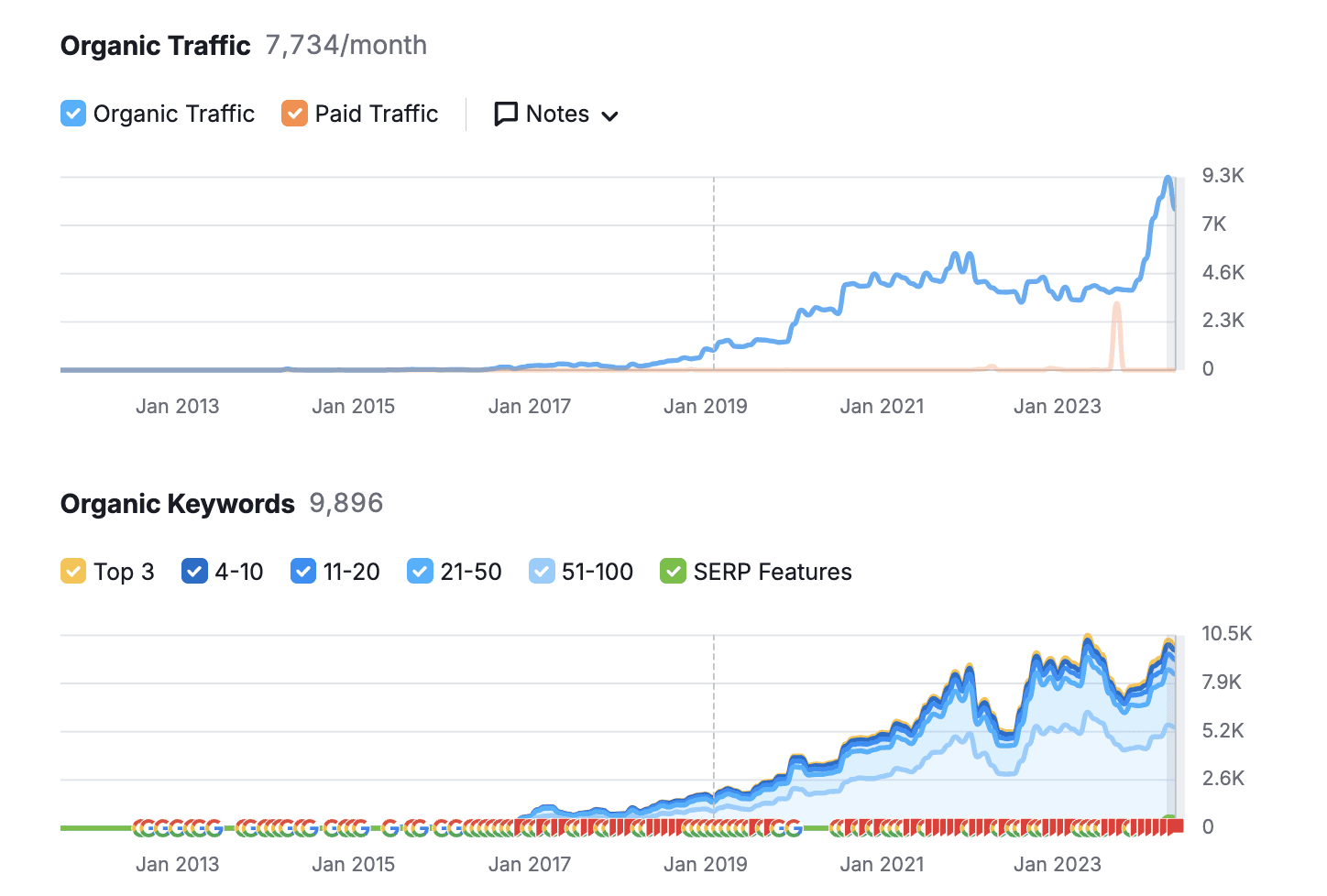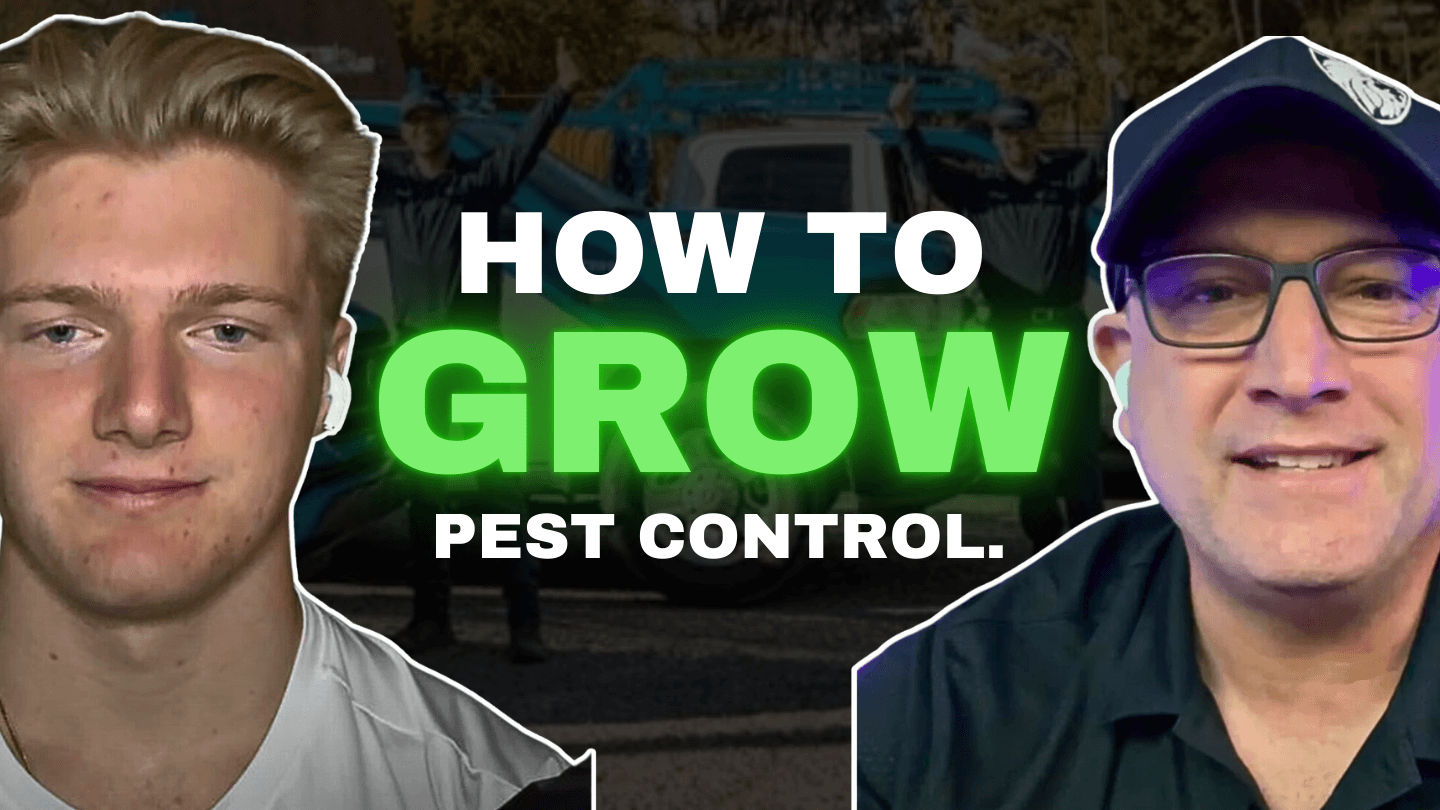Informational
Pest Control SEO: How To Do SEO For Pest Control Companies
Danny Leibrandt
Apr 15, 2024
If you’re still relying on word of mouth or expensive paid ads without much return, it's time to consider SEO (Search Engine Optimization). With the right SEO strategies in place, your pest control company can get to the top of Google and stay there, generating a steady stream of new leads without having to break the bank. In this guide, I’ll walk you through exactly how to do SEO for pest control companies and why it’s the best long-term strategy to grow your business.
Why SEO is Crucial for Pest Control Companies
Let’s face it—customers today are searching for local services on Google. They aren’t flipping through the Yellow Pages anymore; they’re Googling “pest control near me” or “how to get rid of ants.” If you’re not showing up in those searches, you’re missing out on a massive opportunity. SEO helps your website rank higher on search engines, which means more people will find your business. The beauty of SEO is that, unlike paid ads, the traffic you earn is organic. It doesn’t cost you anything every time someone clicks on your website, and the results compound over time.
Essential Steps to SEO for Pest Control Companies
1. Keyword Research
Everything starts with the right keywords. The goal is to target terms that potential customers are searching for, like “pest control in [City]” or “[specific pest] exterminator near me.” Focus on local keywords that align with your service area and pest types. A mix of broad terms and specific, long-tail keywords (such as "how to get rid of bed bugs in Chicago") will help attract both general and niche customers.
2. On-Page SEO
On-page SEO involves optimizing your website to rank better in search results. This includes:
Title tags, meta descriptions, and headers: These are the first things people see when your page appears in search results. Make sure they’re optimized with your main keywords.
Service Pages: Each pest you handle should have its own dedicated page. For example, create separate pages for termite extermination, bed bug removal, and rodent control. This not only helps customers find exactly what they need, but also gives Google more relevant content to index.
Internal Links: Link your pages together. If you write a blog about preventing termites, link to your termite control service page.
3. Content Strategy
Creating valuable content is the backbone of SEO. Think about the most common questions your customers ask and turn those into blog posts. This could be anything from “How to prevent termites during spring” to “The most common signs of bed bugs in your home.” The more helpful your content, the more Google will recognize your site as an authority in pest control, and the more customers you’ll attract.
4. Technical SEO
Your website needs to be fast, mobile-friendly, and easy for Google to crawl. If your site is slow or difficult to navigate on a phone, it’s going to hurt your rankings. Use tools like Google’s PageSpeed Insights to ensure your website is optimized. Also, check for any crawl errors or broken links that might prevent Google from indexing your site properly.
5. Local SEO
For a pest control company, local SEO is essential. Claim and optimize your Google Business Profile. Make sure your Name, Address, and Phone Number (NAP) are consistent across all platforms (your website, Google Business Profile, Yelp, etc.). Encourage customers to leave reviews, as this can improve your rankings in local search results.
Advanced SEO Tactics for Pest Control Companies
1. Building Backlinks
Backlinks are links from other websites to yours. Google views these as votes of confidence, which can improve your rankings. Look for opportunities to get local backlinks by partnering with other businesses, sponsoring local events, or contributing articles to local news sites.
2. Schema Markup
Schema markup is a type of code that helps search engines understand your website better. Adding local business schema to your site can improve how your business appears in search results, particularly in local searches.
3. Voice Search Optimization
With the rise of voice search, it’s smart to optimize your content for conversational, question-based queries. For example, include FAQs on your site like, “How do I get rid of ants in my kitchen?” to align with how people use voice assistants like Siri or Google Assistant.
Tracking and Measuring SEO Success
SEO isn’t a set-it-and-forget-it strategy. It requires ongoing monitoring to see what’s working and where improvements can be made. Tools like Google Analytics and Search Console will show you how much traffic your website is getting, which keywords are driving that traffic, and how users are interacting with your site. Track key performance indicators (KPIs) like leads, organic traffic, and conversions to measure your SEO success over time.
Common SEO Mistakes Pest Control Companies Should Avoid
While SEO can deliver great results, there are common mistakes to watch out for:
Ignoring Local SEO: If you don’t optimize your site for local searches, you’re missing out on a huge customer base.
Keyword Stuffing: Overloading your pages with keywords can actually hurt your rankings.
Not Being Mobile-Friendly: A mobile-friendly site is crucial, especially when more users are searching from their phones.
Focusing Only on Rankings: It’s easy to obsess over getting to the top of Google, but user experience matters too. A site that ranks high but doesn’t convert visitors into customers isn’t doing its job.
How to Get Started with SEO for Your Pest Control Business
If you’re ready to start implementing SEO for your pest control business, here’s how to get started:
Conduct an SEO audit to see where your website stands.
Create a content strategy that aligns with your services and customer needs.
Invest in professional SEO services if you don’t have the time or expertise to do it yourself.
Conclusion
SEO is the best way for pest control companies to attract customers in 2024. It’s a long-term, cost-effective strategy that keeps on delivering. With the right approach, your website can generate organic traffic and leads for years to come. Ready to start getting more customers? Focus on SEO today and watch your business grow.


